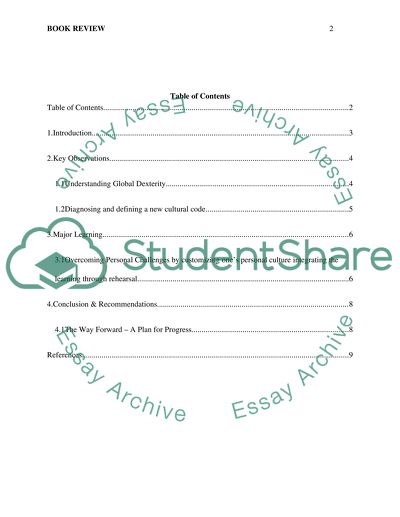Cite this document
(“Global Dexterity: How to Adapt Your Behavior Across Cultures without Essay”, n.d.)
Global Dexterity: How to Adapt Your Behavior Across Cultures without Essay. Retrieved from https://studentshare.org/finance-accounting/1674924-global-dexterity-how-to-adapt-your-behavior-across-cultures-without-losing-yourself-in-the-process
Global Dexterity: How to Adapt Your Behavior Across Cultures without Essay. Retrieved from https://studentshare.org/finance-accounting/1674924-global-dexterity-how-to-adapt-your-behavior-across-cultures-without-losing-yourself-in-the-process
(Global Dexterity: How to Adapt Your Behavior Across Cultures Without Essay)
Global Dexterity: How to Adapt Your Behavior Across Cultures Without Essay. https://studentshare.org/finance-accounting/1674924-global-dexterity-how-to-adapt-your-behavior-across-cultures-without-losing-yourself-in-the-process.
Global Dexterity: How to Adapt Your Behavior Across Cultures Without Essay. https://studentshare.org/finance-accounting/1674924-global-dexterity-how-to-adapt-your-behavior-across-cultures-without-losing-yourself-in-the-process.
“Global Dexterity: How to Adapt Your Behavior Across Cultures Without Essay”, n.d. https://studentshare.org/finance-accounting/1674924-global-dexterity-how-to-adapt-your-behavior-across-cultures-without-losing-yourself-in-the-process.


